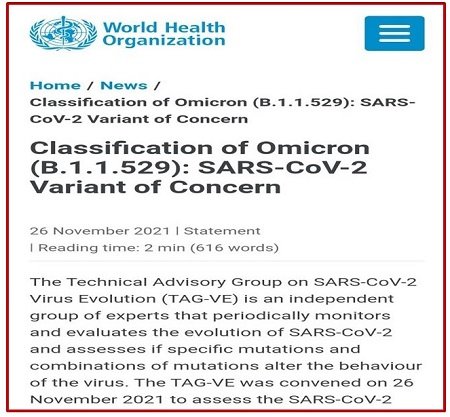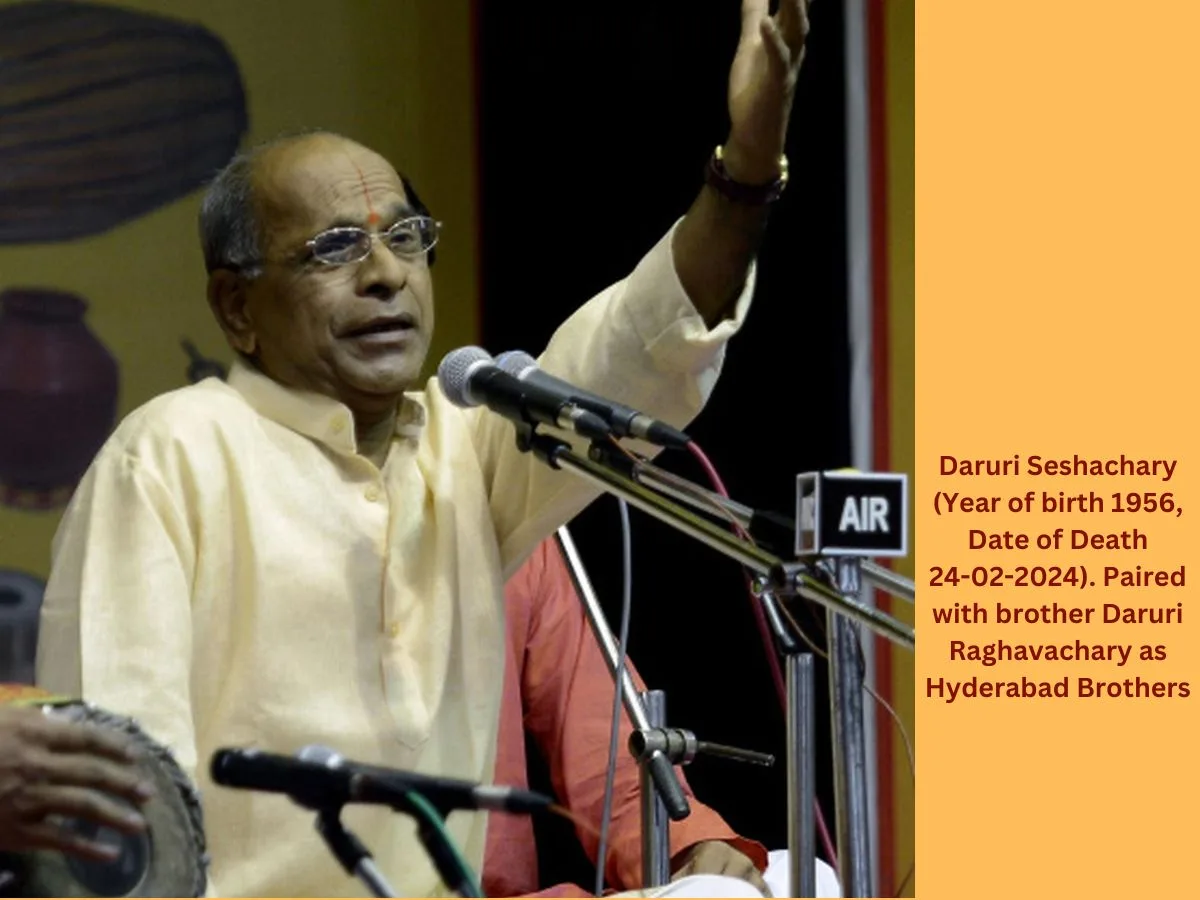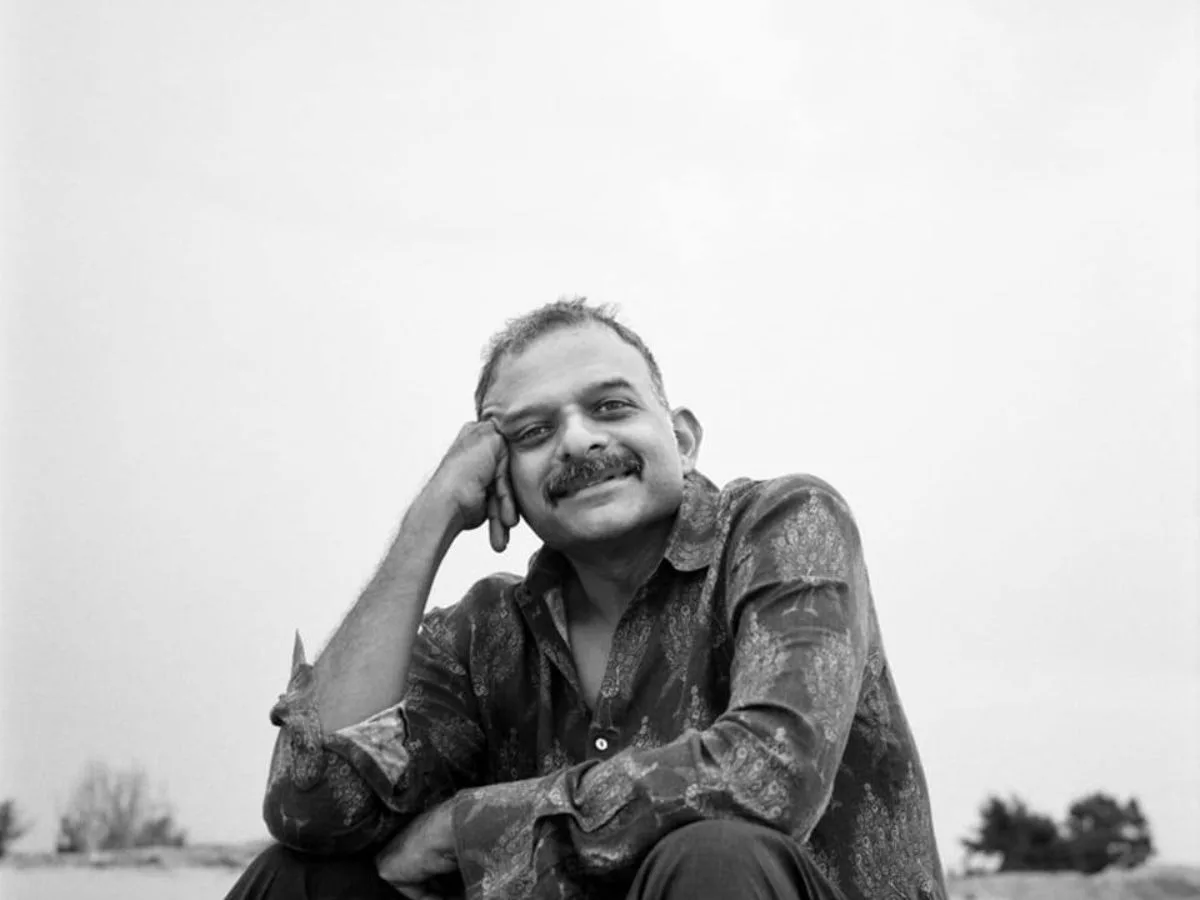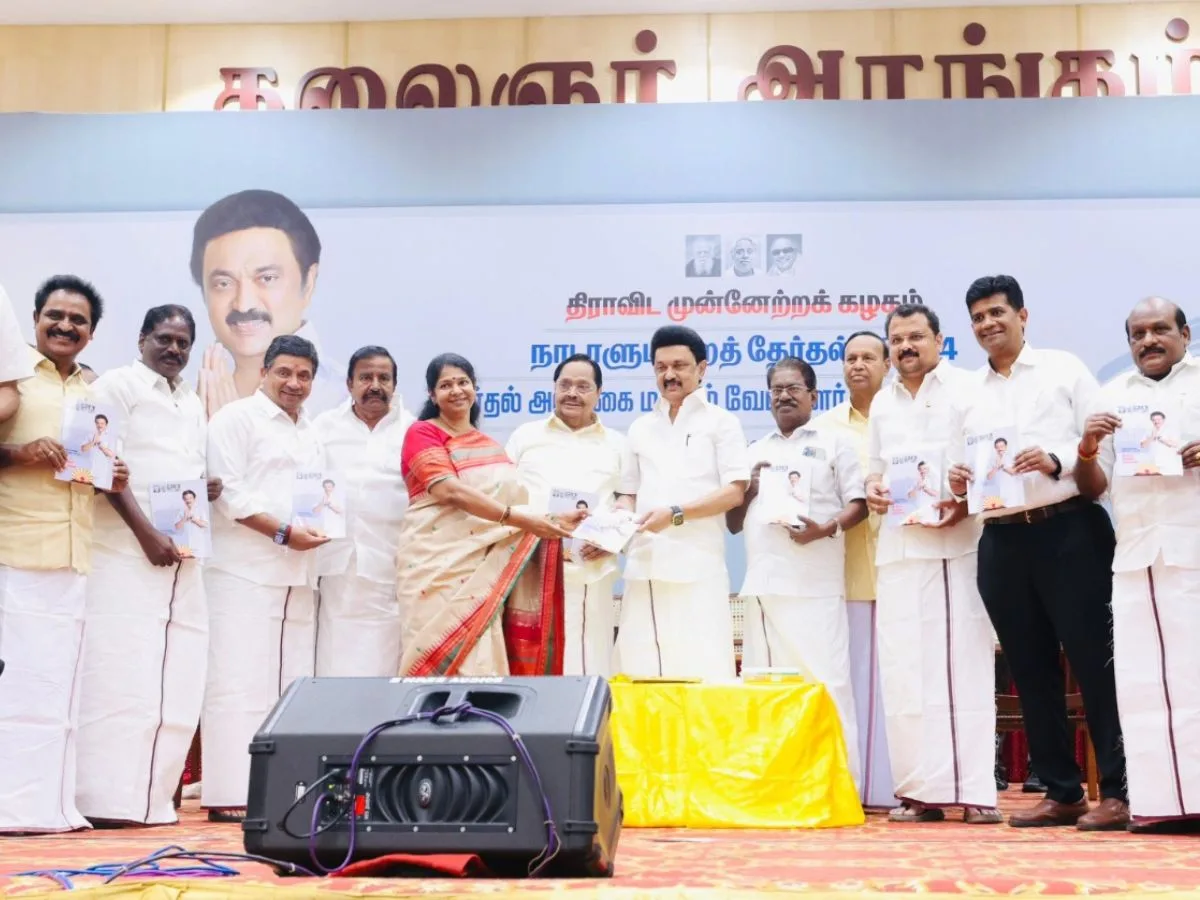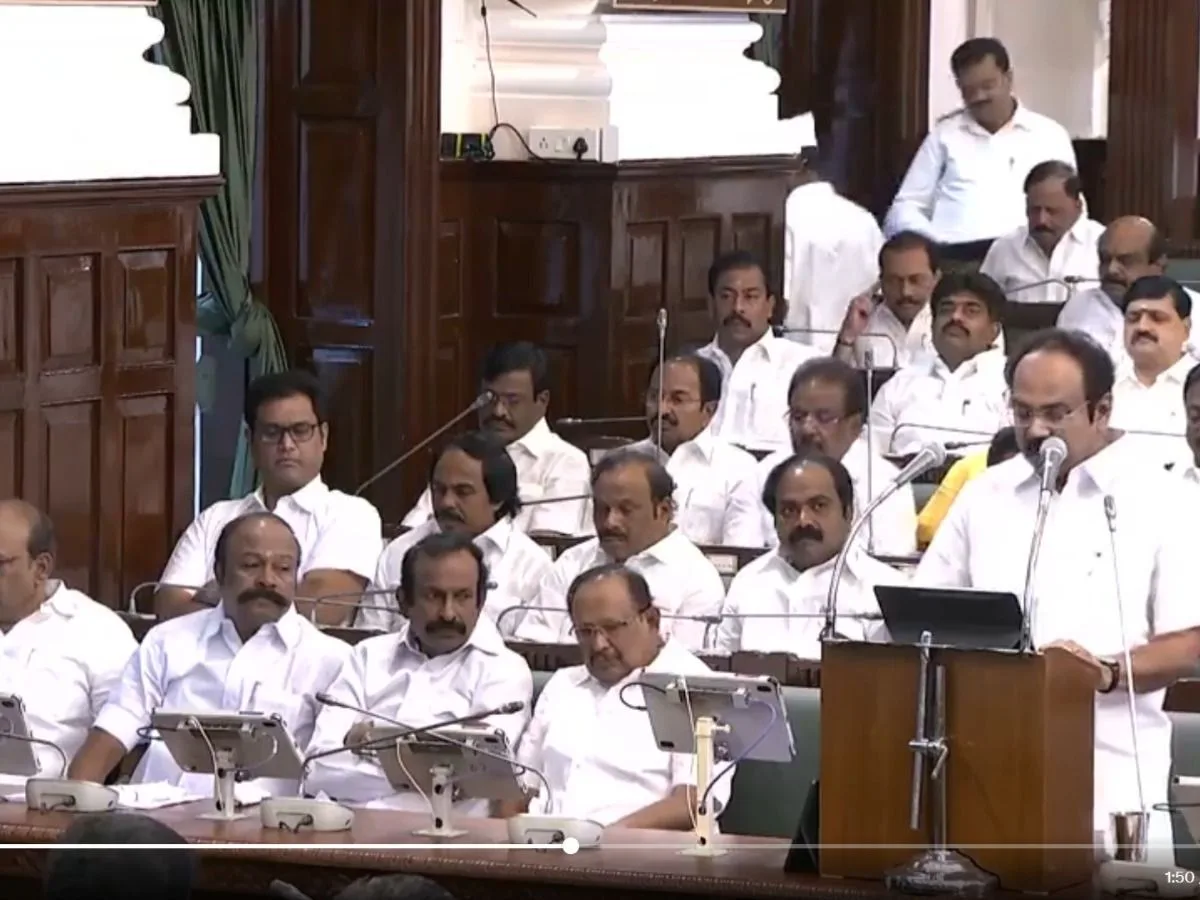Read in : தமிழ்
World Health Organization has declared COVID19 variant Omicron (B.1.1.529) as a variant of concern. The independent group of experts under the Technical Advisory Group on SARS-CoV-2 Virus Evolution (TAG-VE) periodically evaluates COVID19 to find specific mutations and combinations of mutations.
The technical group which met on Friday assessed variant B.1.1.259. The variant was first reported to the World Health Organization from South Africa on Nov. 24, 2021. The new variant has been named Omicron and WHO has declared it as a variant of concern.
The variant was first reported to the World Health Organization from South Africa on Nov. 24, 2021. The new variant has been named Omicron and WHO has declared it as a variant of concern
South Africa has been seeing a sudden spike in COVID19 cases. After the first and second waves in India, there was a third wave in some of the countries. The new variant appears to trigger a possible fourth wave. The SARS-CoV-2 or COVID19 which started spreading from China in 2019 has kept the world under its grip ever since. The alpha, beta and delta variants have claimed many lives and destroyed livelihoods across the world.
Compared to the first wave, the second wave caused by the Delta variant resulted in severe loss of life and economic crisis. After a series of lockdowns and loss of livelihood, the economy is back on track and normalcy is returning across the country and the world.
Under these circumstances, WHO announcing Omicron as a variant of concern has sent shock waves across the world. WHO warns that Omicron has a large number of mutations and some of which are concerning. The apex health body feared that the new variant would cause an increased risk of reinfection as compared to other variants. South Africa is reporting increased cases of this variant across all provinces, WHO warned.
WHO announcing Omicron as a variant of concern has sent shock waves across the world. WHO warns that Omicron has a large number of mutations and some of which are concerning. The apex health body feared that the new variant would cause an increased risk of reinfection as compared to other variants.
Countries are gearing up to face this new variant. International flights to the affected countries have been suspended again by the United States and Canada. Researchers warn that the new variant would have spread in many more countries.

Dr Farook Abdulla
Dr Farook Abdulla, MD Pharmacology says that proper vaccination would save us from the new mutant. Inmathi interviewed him earlier on Kamal Haasan getting infected with COVID19 after his Chicago trip.
Question: The new mutant Omicron is said to be having around 50 DNA mutations. How severe would be the impact of Omicron?
Abdulla: A virus uses its spike protein to penetrate the human body. Normal viruses will have 30 mutations. But Omicron with 50 DNA mutations could cause widespread infection.
Question: Researchers say Omicron’s infection rate would be higher than the Delta variant which caused the second wave. How do we protect ourselves?
Abdulla: We had not vaccinated people adequately when the first wave happened. The consecutive waves created vaccination awareness among the public. Vaccination rate has significantly increased in our country. Vaccination would greatly reduce the impact of this new variant also. The death toll is unlikely to be alarming like it was in the last wave. Vaccination is the key to preventing loss of life.
Question: What are the possibilities of Omicron infecting fully vaccinated people? In cases of reinfection, what would be manifestations of the disease?
Abdulla: Any virus, in that case, affects the human body. We would be able to know the manifestations of the disease caused by the new variant only after sufficient research. The unvaccinated are more vulnerable.
Question: WHO has announced Omicron as a variant of concern. Will it be deadlier than the previous mutants?
Abdulla: Beta variant mutated into Delta variant and we saw its impact. We were in the initial stages of vaccination and Delta taught us the precious lesson of being prepared. Though WHO has termed Omicron as a variant of concern, the chances of it causing widespread damage are unlikely. Though the infection rate is high, hospitalization would be lesser because of the vaccination. The disease can be cured.
Question: What are the precautionary measures we should adopt to face this new variant?
Abdulla: Everyone should get vaccinated without fail. A lackadaisical approach would do more harm. An individual’s effort would safeguard society as a whole against COVID19. Wearing masks and maintaining physical distance as well as avoiding crowded places would be helpful.
Question: When would COVID19 disappear?
Abdulla: The fight must go on till the enemy retreats or is destroyed completely. We have to keep fighting against the variants and mutants till the end. Awareness and vaccination would stop further mutations. Please get vaccinated.
(Dr Farook Abdulla is Chief Medical Officer Incharge of Ilayangudi Govt Hospital. He has authored four books and prolific writer on health issues for various publications. He conducts free medical camps in medically less privileged areas and tribal villages)
Read in : தமிழ்
